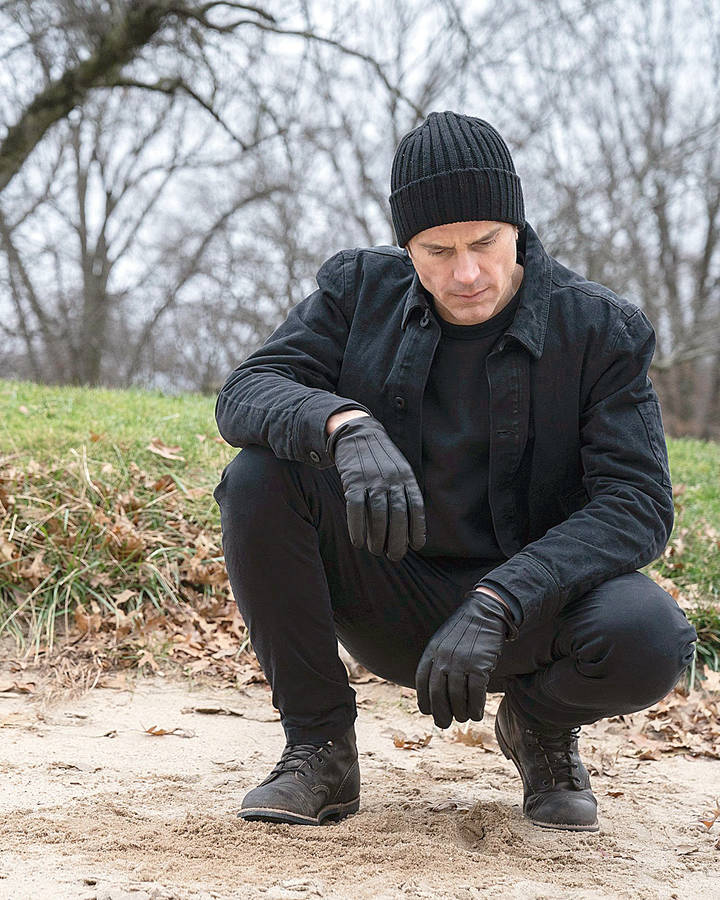
2021-06-02
Focus on filming amid a pandemic
by GAYLE WILSONFor Gail Bond of Chester Basin, the issue concerning film making that's been going on along the South Shore recently is one that's clearly black and white.
"I was appalled when I heard it, I really was," she said.
The Chester Basin resident had called LighthouseNOW wondering why the filming of USA Network's The Sinner has been allowed to proceed during the pandemic.
"It really peeved me off. Because I thought we're all trying to adhere to the rules and doing all what we can," she said. Bond's call came in shortly before the latest easement of regulations and she referred to businesses that had closed while people adhered to public health protocols, such as social distancing and not leaving their respective counties other than for essential travel.
"You know, they're in Chester and then they're in Lunenburg and then they're going to Halifax ... We're not supposed to go to Halifax ... You need to go to the hospital, that's essential for a test, or you have an appointment in there or whatever,"she told LighthouseNOW in a phone conversation.
"I don't consider a movie essential. I seriously don't."
What also annoyed her was "I even phoned the premier's office five or six times now and nobody has ever gotten back to me."
Bond was not alone in her concern. The issue was also brought to the attention of Lunenburg Town Council last month and played out on social media. Town councillor Ed Halverson took it upon himself to address the concerns in a social media post.
Halverson led off emphasizing that it's the provincial government that decides whether or not a production may enter and operate in Nova Scotia.
"The town is responsible for issues closer to home, such as granting permission to block off parking spaces or street closures. Outside of those conditions, the only input we would have on where a production can film is if they asked permission to use a Town-owned facility," he said.
Halverson indicated he was advised by Gordon Pease, the assistant location manager for The Sinner, that the production has extensive protocols in place. These include a mandatory 14-day self-isolation for every crew member who enters the province, and restriction of production members to local accommodation during filming.
"The crew is divided into smaller cohorts or working units that perform similar tasks or work on particular aspects of the show. These cohorts operate as independently from each other as possible so they keep contact between crew members to a minimum," Halverson further explained.
Moreover, all crew members undergo "between one and three COVID tests each week." The testing also includes any local workers or extras who will be on set.
Each crew member wears a locator device that indicates if they are within six feet of another person, and should any of the crew members become ill the locator can show who has been within a six-foot radius of the affected member, and that person will then also need to self-isolate and undergo testing.
"Everyone on the production is required to wear masks and follow social distancing guidelines at all times and a team of local residents monitors compliance," noted Halverson.
He added that the production also has a fog machine "that serves to knock down airborne viruses," which is used whenever work begins or ends on a set.
Halverson said that as a town councillor he's personally "excited" to see the resumption of filming in Lunenburg, "particularly when it is being done in a manner that is responsive to the current pandemic."
While he noted the provincial travel restrictions that were in place at the time "are hard on all of us," he pointed out that the production was underway before those restrictions were put in place.
And while he conceded many people have family members elsewhere in the province they'd like to visit, the councillor said, "Many of our local businesses are already suffering and we can't shut everything down as we wait for the world to get a handle on the coronavirus.
"The production crew of "The Sinner" have demonstrated they are filming responsibly and I welcome them to Lunenburg for the summer."
Halverson's post drew 71 comments, the majority of which were supportive of his efforts in explaining the issue, and and supportive of the filming work.
"Absolutely welcome - let's all agree that we have come to rely on the arts and the value we place them in during this pandemic has been ten fold!" commented Jane Kelly Barker.
Philip Aulenbach suggested that, as someone who worked on film sets last year and will again this year, "I can tell you that a film set is one of the strictest and safest places to work during COVID and in fact at anytime. Period. Most employers do not require the PPE that a film set do, nor do they do weekly testing of all employees. So there is no need to worry about a film crew spreading COVID here - they are probably safer than most other businesses that are still open."
But not everyone agreed. Lowell MacPhee responded to one comment saying, " I'm sorry but I'm not seeing any win here. I'm seeing a very good chance of community spread since a negative test result is only good for the day you get the test according to [Nova Scotia Chief Medical Officer] Dr Strang."
On the flip side, at least one film production seems to have decided the strict protocols weren't worth the effort. CBC News reported last month that a new Amazon Studios series, The Summer I Turned Pretty, would not be starting production on the South Shore in July as planned. CBC called it a" multi-million-dollar casualty of the pandemic's third wave in the province."
Amazon reportedly said it will now be shot in the U.S. where COVID-19 restrictions had eased.
Shelley Bibby, a business agent with Local 849 of IATSE, the union representing technicians and artists in the film and TV industry, was said to have estimated losses of about $7.5 million in local labour, and as high as $11.5 million if workers came from outside the province.
"It's quite a blow, it really shocked quite a few people," Bibby commented to CBC.
"I think we've proven we're able to function safely with strong protocols," she said.







